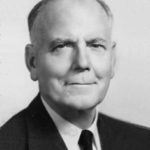Description
THE FEASTS OF THE LORD
Leviticus 23:1-44
Foreshadowing God’s plan of the ages from the past eternity to the future eternity
by
Louis T. Talbot
The Feasts of the Lord
Contents
CHAPTER ONE “THE LAW… A SHADOW OF GOOD THINGS TO COME” Hebrews 10:1 3
CHAPTER TWO “MOSES . . . WROTE OF ME” (John 5:46) 8
CHAPTER THREE “THESE ARE THE FEASTS OF THE LORD” (Leviticus 23 :4) 15
CHAPTER FOUR THE FEAST OF THE PASSOVER. 19
CHAPTER FIVE THE FEAST OF UNLEAVENED BREAD.. 35
CHAPTER SIX THE FEAST OF THE FIRSTFRUITS. 40
CHAPTER SEVEN THE FEAST OF PENTECOST. 48
CHAPTER EIGHT A LONG INTERVAL. 61
CHAPTER NINE THE FEAST OF TRUMPETS. 64
CHAPTER TEN THE DAY OF ATONEMENT. 75
CHAPTER ELEVEN THE FEAST OF TABERNACLES. 89
CHAPTER TWELVE “THESE ARE THE FEASTS OF THE LORD” 94
The Feasts of the Lord
CHAPTER ONE “THE LAW… A SHADOW OF GOOD THINGS TO COME” Hebrews 10:1 The Feasts of the Lord
While the children of Israel were encamped at the foot of Mount Sinai; “the Lord called unto Moses, and spake unto him out of the tabernacle of the congregation” (Leviticus 1:1).
And the message which God spake unto Moses in that day; comprises the whole of the book of Leviticus. Among other commandments which He gave to His people on this solemn occasion we find His instructions regarding the observance of “the feasts of the Lord,” recorded in chapter twenty-three.
This chapter opens with these words:
“And the Lord spake unto Moses, saying, Speak unto the children of Israel, and say unto them, concerning the feasts of the Lord, which ye shall proclaim to be holy convocations, even these are my feasts.”
The Feasts of the Lord
There were seven of them, and each was to be observed annually.
It is our purpose in this study to consider the typical teaching of these seven “feasts of theLord,” for they are rich in spiritual lessons for God’s people of all ages. But before we begin this study in detail, let us consider briefly what we mean by the “types.”
The Feasts of the Lord
The Epistle to the Hebrews, more than any other New Testament book, is a kind of commentary on Old Testament ritualism and Old Testament prophecy.
Frequently in this letter we read the words “shadow” and “figure”; and in Hebrews 10:1 we read the plain declaration that “the law” was “a shadow of good things to come.”
Now the Holy Spirit often refers to the first five books of the Bible as “the law,” “the law of Moses,” and “the book of the law.” In another, more limited, sense the words spoken by God to Moses from Mount Sinai are called “the law”; and in yet another sense the whole of the Old Testament is described by this term. In any case, from Genesis to Malachi we have hundreds of “shadows” or “figures” or types of “good things to come”—all fulfilled in the person and work of the Lord Jesus Christ. He is the One in whom the “good things to come” find their full and complete and final fulfillment.
The Feasts of the Lord
Some of these many types deal with the person of the Lord Jesus, His eternal deity and His perfect humanity. Others deal with His work on the cross, in His resurrection, in His present ministry of intercession, and in His coming glory. Yet others deal with the ages, and show us in shadow or prophecy God’s eternal purpose, from the past eternity to the future eternity.
The Feasts of the Lord
In the feasts of the Lord we see many wonderful types of the person and work of Christ; and these we shall consider as we follow this series of studies.
But first let us grasp the broad, outline purpose of these “holy convocations”; for in a remarkable way they show us God’s eternal purpose in His dealings with man throughout the ages.
In Hebrews 1:2 we read that the eternal Son of God “made the worlds”; or, as the literal meaning of the phrase is that He framed or “made the ages.”
In our study of “God’s Plan of the Ages” we have tried to comprehend something of this “eternal purpose which he purposed in Christ Jesus our Lord” (Eph. 3:11). And we have seen that it finds its accomplishment in the person and work of the Lord Jesus Christ—eternal God, perfect Man, and only Saviour of sinners.
The Feasts of the Lord
We have seen that in Old Testament days men were saved by trusting in the Christ of prophecy, even as “Abraham rejoiced” to see His day, and “was glad” (John 8:56). And we have seen that all who live in New Testament times much approach God on the ground of the finished work of Christ on Calvary, if they are to inherit eternal life.
This truth was in the mind and heart of the hymn writer who sang:
“In the cross of Christ I glory, Tow’ring o’er the wrecks of time; All the light of sacred story Gathers ’round its head sublime.”
But you may ask: Is it really true that in the twenty-third chapter of Leviticus and in all the Old Testament we find set forth in type and shadow God’s great plan of the ages, wrought out in the person and work of Christ?
The Feasts of the Lord
Can we be sure that these types have not sprung from the imagination of men? Yes, my friend, we can be very sure, as we search the Scriptures to find out whether these things are so. For our answer let us turn, not only to the words of the Holy Spirit, to which we have already referred: “The law” was “a shadow of good things to come”; but let us look also at the plain statements of the Lord Jesus Himself.
The Feasts of the Lord
Two of these we find in the twenty-fourth chapter of Luke.
The risen Christ, withholding His identity from the two disciples, was walking with them to Emmaus.
Having listened to them as they rehearsed the story of His own death and resurrection, He said unto them:
“O fools, and slow of heart to believe all that the prophets have spoken: ought not Christ to have suffered these things, and to enter into his glory? And beginning at Moses and all the prophets, he expounded unto them in all the scriptures the things concerning himself” (Luke 24:25-27).
The Feasts of the Lord
Rebuking these disciples for their unbelief, the risen Lord said that the prophets had foretold His sufferings and “the glory that should follow.”
Moreover, He began His exposition of all the Old Testament with Moses’ writings; and Moses, under the guidance of the Holy Spirit, wrote the first five books of the Bible. “Beginning at Moses ”—Genesis, Exodus, Leviticus, Numbers, Deuteronomy— “he expounded unto them in all the scriptures the things concerning himself.” What a wonderful exposition that must have been!
Later in this same chapter we read that the risen Lord said practically the same thing to the ten disciples:
“These are the words which I spake unto you, while I was yet with you, that all things must be fulfilled, which were written in the law of Moses, and in the prophets, and in the psalms, concerning me” (verse 44).
The Feasts of the Lord
And in John 5 :39, 46 we read that Christ gave the Old Testament Scriptures as one of the infallible proofs of His deity—the New Testament was not then written. “Ye search the scriptures,” He said to the unbelieving Jews, “ for in them ye think ye have eternal life: and they are they which testify of me . . . Had ye believed Moses, ye would have believed me: for he wrote of me” (John 5:39, 46).
The Feasts of the Lord
“Beginning at Moses” we read the story of God’s great plan of redemption. Hundreds of prophecies, given in plain declaration and in shadow and type, foretold the coming into the world of the eternal Son of God, the only Redeemer and Lord. And why are there so many shadows and types? you may ask. Because one—or a few—could not tell the whole story of the wonderful person and mighty work of Christ Jesus, the Lord.
The Feasts of the Lord
When I was coming to this country from Australia, I visited the Dore Art Gallery in London. As the guide led me first to one platform, then to another, to view the same painting, I realized that he was showing me the one picture from different angles. And so it is in the Word of God. The Holy Spirit leads us to behold first one and then another of the marvelous portraits of our Lord and Saviour. So wonderful is His glorious person, and so marvelous is His work on our behalf, that our poor, little, finite minds can not grasp the picture in one glance. And throughout the endless ages we shall be finding new marvels as we gaze upon the face of the Son of God!
The Feasts of the Lord





Reviews
There are no reviews yet.